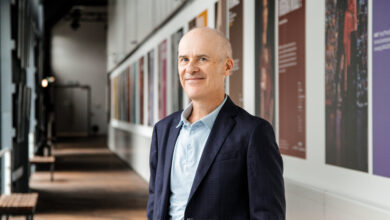Think of the parents

A recent study found many NICU workers don’t think they have the skills and support to help mums and dads.
Nurses in the neonatal intensive care unit have highlighted concerns about their preparedness to support parents emotionally.
New research from the University of Adelaide, published in the Journal of Clinical Nursing, suggests nurses want additional training to be able to assist parents in a meaningful and consistent way.
The report concluded that “the role of the neonatal nurse in providing emotional support is complex and requires a high level of ongoing support and education for staff, and minimisation of physical and staff-related obstruction”.
The lead author, the University of Adelaide’s Dr Melanie Turner – who conducted this research as part of her PhD – says parent support has become a core part of the nurse’s role, but many have not been trained to provide the level of mental healthcare and support that is required.
“Nurses working in neonatal intensive care have high emotional demand placed upon them, in addition to providing a high level of care to premature babies,” Turner says. “Most NICU nurses are highly trained and have chosen to do postgraduate education. However, when you feel like you can’t do your job properly, it is really dissatisfying. So feeling dissatisfied, burnt out and leaving the role is a high risk for NICU staff.”
Turner’s interest in communication with parents in distress first arose in her early years of psychiatry training, when she considered the amount of time that a dedicated mental health professional wasn’t on the ward.
“I could see it was very busy and the parents were very distressed, so this study came from the view point of how do we help the nurses for the 23 hours when someone isn’t there.”
Nine nurses from a single NICU were interviewed and data was drawn and analysed thematically.
It was found that participants found their role enjoyable, yet difficult, and felt communicating, listening, providing individualised support and encouraging parental involvement with the baby were important parts of their role.
The nurses considered a positive environment to be important in providing support to parents.
The research identified key factors nurses felt hindered their ability to provide support. Here we look into three:
Education
Turner says most nursing staff pointed to their lack of counselling skills as a lead concern. And according to the report, due to a greater focus on family-centred care the need to provide emotional support is likely to grow.
She says nurses wanted to know more about how to approach difficult conversations, how to ask people if they were in distress and how to comfort someone.
“[The NICU] is such an intensive clinical space where they have to do so much care for the baby – or the baby could have adverse events,” Turner says. “It is reasonable that their training is focused on that because in intensive care, clearly the nurses need to keep the baby alive.
“However, the bit that is missing is you have the parents sitting right next to you for those 23 hours really … so how to bridge the gap between looking after the baby and then talking to the parents.”
In contrast to Turner’s comments, Janet Green, senior lecturer, faculty of health at University of Technology, Sydney, says she is worried about the notion of nurses as counsellors.
“If you look at the ANMC competencies, we are not counsellors. A counsellor is a professional – like a psychologist, therapist or psychiatrist,” she says. “Our role is more about helping, being empathetic, knowing when things might be wrong. I get quite concerned when nurses want to be all things to all people.”
Green says what nurses need is training in how to deal with people in crisis; not counselling but an understanding that the parents they are dealing with are going through a tragic situation.
“My key point is [the nurses] have recognised what they need,” Green says. “If their organisation isn’t providing it and they feel they need this to do their job more effectively – then they need to seek out that education.”
Staff support
Heavy workloads and the need for highly trained, experienced and senior staff was another factor the report highlighted as a hindrance to nurses’ ability to provide support to parents.
“While some staff are very experienced in the role, neonatal units often have junior staff working on placement, because they’re still learning the specialisation of neonatal intensive care nursing,” Turner says. “These junior staff can find it difficult to support families who are experiencing an extremely emotional time in their lives.”
This lack of experience often causes miscommunication with parents – with conflicting information often given from a number of different staff members, which frustrates the parents.
“Often the junior staff or staff from other [places] aren’t familiar with the area, so the senior staff not only take up their load, but someone else’s as well,” a study participant reported.
Many nurses were concerned that loss of staff or failure in recruitment might not only decrease their time available for babies but also limit the time spent with parents.
Another study participant says: “They’ve actually tried to get more staff, and recruit more staff and they haven’t been successful … If you did have more staff, then people … you’re not trying to cover as many bases. You would actually have time to talk to parents and probably help them with their stress levels more.”
Physical space
Another major obstruction nurses identified as hindering their ability to provide emotional support was a simple lack of room.
About 8 per cent of babies were born prematurely in 2008, and Turner says many facilities weren’t designed to hold those kinds of numbers.
“Nurseries are small and crowded quite often because many of these nurseries were built before we knew that babies could survive from 23 weeks – so they weren’t built for the number of babies,” Turner says.
“Often it’s crowded – which means noisy and busy and the turnover of nurses for each shift can be chaotic.”
Study respondents described the environment as “cramped space with a large amount of equipment, a lack of privacy for parents and overcrowding with babies”.
One participant described the environment as “bedlam sometimes”; whilst another said the spacing issue was one aspect that’s probably working against nurses who are trying to encourage parental involvement.
A couple of hospitals in Australia have moved away from the traditional open-plan NICU environment to one that incorporates single or double rooms for babies. This is said to be more developmentally appropriate for the baby, as well as providing a more supportive and inclusive environment for the parents.
Dr Zsuzsoka Kecskes, clinical director of the Canberra Hospital NICU was heavily involved with the development of its new unit, which aimed to provide a family friendly, baby-focused environment.
She consulted with parents who identified concerns such as privacy, storage and the desire to not have to walk past everyone else’s baby to get to theirs.
“Parents feel they can actually spend more time at the bedside, whereas before when we did a ward round we sent the parent out due to confidentiality issues,” Kecskes says. “Now we are asking the parents to be there as much as possible.”
Parents are also able to learn a lot more about the baby’s condition, what is being done about it and what the plan is for the day. All this helps reduce anxiety, as the parent feels like part of the team.
“The feedback from our parents is that they think it is much more developmentally appropriate and much more family friendly because they can bring their other kids as well to see the baby in a much more private environment,” Kecskes says.
Email: [email protected]





